Related Research Articles

East China Normal University (ECNU) is a public university in Shanghai, China. It is affiliated with the Ministry of Education and co-funded with the Shanghai Municipal People's Government. The university is part of Project 211, Project 985, and the Double First-Class Construction.
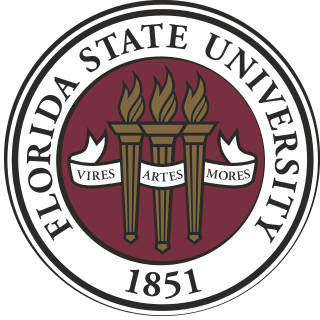
Florida State University is a public research university in Tallahassee, Florida, United States. It is a senior member of the State University System of Florida. Chartered in 1851, it is located on Florida's oldest continuous site of higher education.
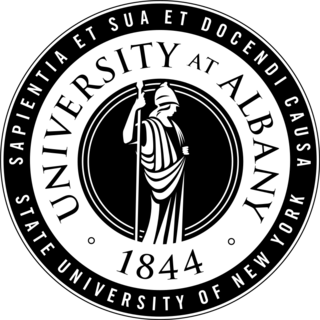
The State University of New York at Albany, commonly referred to as the University at Albany, UAlbany or SUNY Albany, is a public research university with campuses in Albany, Rensselaer, and Guilderland, New York. Founded in 1844, it is one of four "university centers" of the State University of New York (SUNY) system.

Thomas Kent Wetherell was an American politician and educator. He served as a member of the Florida House of Representatives from 1980 to 1992, and was president of Florida State University from 2003 through 2009.
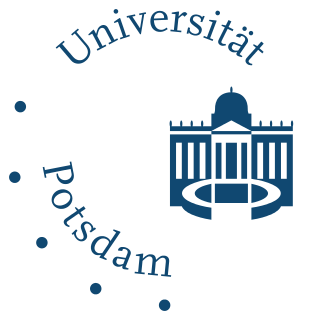
The University of Potsdam is a public university in Potsdam, capital of the state of Brandenburg, northeastern Germany.
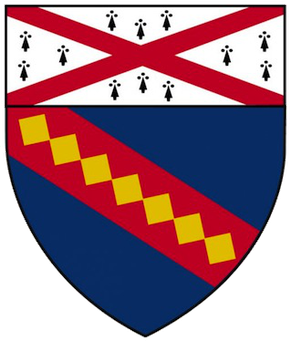
The Yale School of Public Health (YSPH) was founded in 1915 by Charles-Edward Amory Winslow and is one of the oldest public health masters programs in the United States. It is consistently rated among the best schools of public health in the country, receiving recent rankings of 3rd for its doctoral program in epidemiology. YSPH is both a department within the school of medicine as well as an independent, CEPH-certified school of public health.
The College of Liberal Arts and Sciences at ASU is the largest of the 17 independent school units at Arizona State University. Students majoring in The college make up 31 percent of all Tempe campus students.

The Federal University of Rio Grande do Norte is a public Brazilian university funded by the Brazilian federal government, located in the city of Natal, Rio Grande do Norte, Brazil.

The College of Arts and Sciences is the largest of the 17 colleges at Florida State University.
The Florida State University College of Business is the business school of the Florida State University. Established in 1950, it enrolls more than 6,000 students including undergraduates and graduate students seeking their bachelor's, master's or doctoral degrees. All programs are accredited by the Association to Advance Collegiate Schools of Business.
The Florida State University College of Education, Health, and Human Sciences is one of sixteen colleges comprising the Florida State University (FSU). The College has roots that reach back to the West Florida Seminary and the State Normal College for Teachers. The College has a number of nationally ranked programs and is in the Top 20 nationally in terms of doctoral degrees awarded.
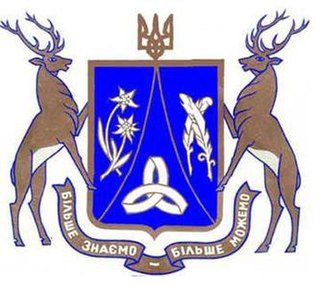
Uzhhorod National University is a Ukrainian state higher educational institution in the city of Uzhhorod in Ukraine.

The Andrew Young School of Policy Studies at Georgia State University houses the Departments of Criminal Justice & Criminology, Economics, and Public Management & Policy, School of Social Work, and the Urban Studies Institute. Georgia State University is the largest university in the state of Georgia.

The University of Florida College of Education is the teacher's college, or normal school, of the University of Florida. The College of Education is located on the eastern portion of the university's Gainesville, Florida, campus in Norman Hall, and offers specializations in special education, higher education, educational policy, elementary education, counseling, teaching, and other educational programs. It is consistently ranked one of the top schools of education in the nation. The college was officially founded in 1906. In fiscal year 2020, the College of Education generated $102.8 million in research funding.
Holocaust studies, or sometimes Holocaust research, is a scholarly discipline that encompasses the historical research and study of the Holocaust. Institutions dedicated to Holocaust research investigate the multidisciplinary and interdisciplinary aspects of Holocaust methodology, demography, sociology, and psychology. It also covers the study of Nazi Germany, World War II, Jewish history, antisemitism, religion, Christian-Jewish relations, Holocaust theology, ethics, social responsibility, and genocide on a global scale. Exploring trauma, memories, and testimonies of the experiences of Holocaust survivors, human rights, international relations, Jewish life, Judaism, and Jewish identity in the post-Holocaust world are also covered in this type of research.
Jimmy G. Cheek is Chancellor Emeritus and Distinguished Professor Emeritus of Higher Education in Department of Educational Leadership and Policy Studies at The University of Tennessee, Knoxville (UTK) and Former Director of the Postsecondary Education Research Center. He is also Professor Emeritus at the University of Florida. As the state's flagship research campus, UT Knoxville is currently ranked as a Top 50 public institution.

University of El Imam El Mahdi is a public Sudanese university based in the town of Kosti, Sudan. The university was founded in 1994 as a public university funded by the Ministry of Higher Education and Scientific Research. It is named in honor of Muhammad Ahmad al-Mahdi, the leader of the Mahdist revolution which overthrew the Ottoman-Egyptian administration and established their own "Islamic and national" government in Sudan (1885–1898).
Francesco C. Billari is an italian sociologist and demographer, and the Rector of Bocconi University in Milan, as well as Professor of Demography in the Department of Social and Political Sciences
Vijaya Lakshmi Melnick is an India-born American academic specializing in biological and environmental sciences and immunology. She is Professor Emeritus of Biological and Environmental Sciences at the University of the District of Columbia. She was the First Vice President and then Co-President of the International Health Awareness Network, an affiliate of the United Nations. She holds memberships on the boards and executive committees of national and international organizations related to either health and education or both. She has written several research papers and books.
References
- ↑ http://www.ir.fsu.edu/studentinfo.cfm?ID=grad [ dead link ]
- ↑ Florida State University - College of Social Science, "About Us" Retrieved on 7-25-2016.